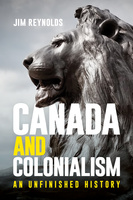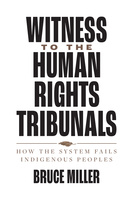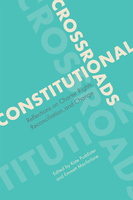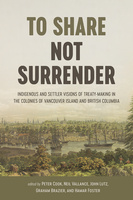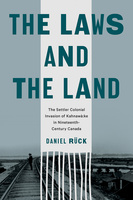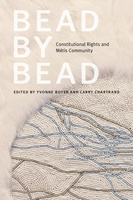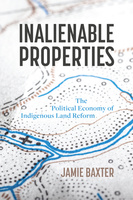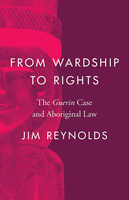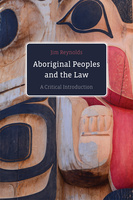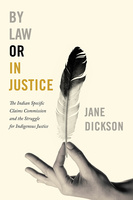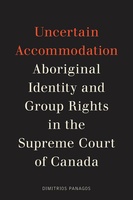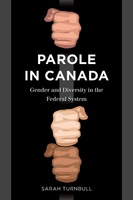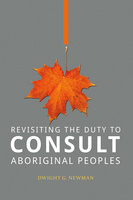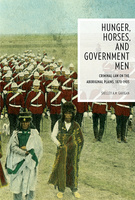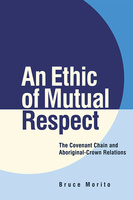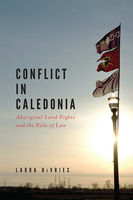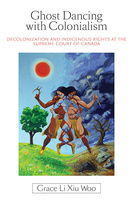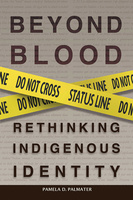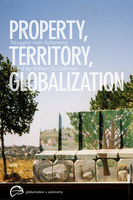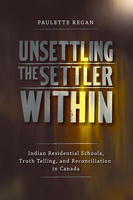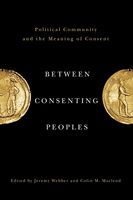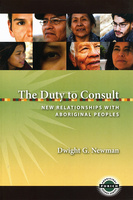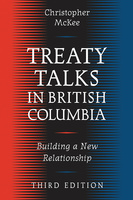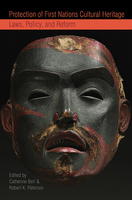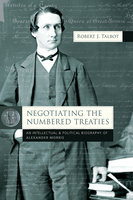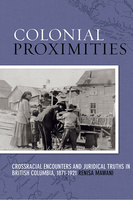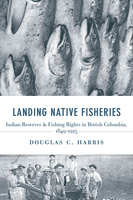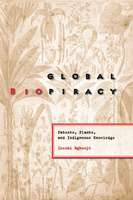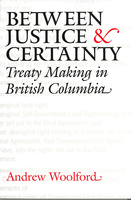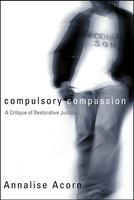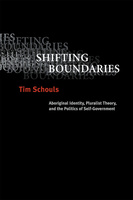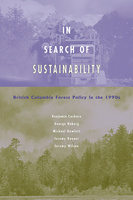Protecting Indigenous Knowledge and Heritage, New Edition
A Canadian Obligation
Against the backdrop of the United Nations Declaration on the Rights of Indigenous Peoples, Protecting Indigenous Knowledge and Heritage examines past and emerging issues in the recognition of Indigenous inherent human rights and knowledge within a Canadian legal context.
Canada and Colonialism
An Unfinished History
Canada and Colonialism presents the history Canadians must reckon with before decolonization is possible, from the nation’s establishment as a settler colony to the discriminatory legacies still at work in our institutions and culture.
Witness to the Human Rights Tribunals
How the System Fails Indigenous Peoples
Witness to the Human Rights Tribunals offers a behind-the-scenes account of the difficulties facing Indigenous people in human rights tribunals, and the struggles of experts to keep their own testimony from being undermined.
Constitutional Crossroads
Reflections on Charter Rights, Reconciliation, and Change
Four decades after the adoption of the Constitution Act, 1982, Constitutional Crossroads assesses its legacy, focusing on the themes of rights, reconciliation, and constitutional change.
Beyond Rights
The Nisg̱a’a Final Agreement and the Challenges of Modern Treaty Relationships
Beyond Rights examines the legal, political, and cultural implications of the groundbreaking process of negotiating the Nisga’a treaty.
To Share, Not Surrender
Indigenous and Settler Visions of Treaty Making in the Colonies of Vancouver Island and British Columbia
To Share, Not Surrender presents multiple views and lived experience of the treaty-making process and its repercussions in the Colonies of Vancouver Island and British Columbia, and publishes, for the first time, the Vancouver Island Treaties in First Nations languages.
The Laws and the Land
The Settler Colonial Invasion of Kahnawà:ke in Nineteenth-Century Canada
The Laws and the Land, an original and impassioned account of the history of the relationship between Canada and Kahnawà:ke, reveals the clash of settler and Indigenous legal traditions and the imposition of settler colonial law on Indigenous peoples and land.
Bead by Bead
Constitutional Rights and Métis Community
Bead by Bead lays bare the failure of judicial doctrine and government policy to address Métis rights, and offers constructive insights on ways to advance reconciliation.
Inalienable Properties
The Political Economy of Indigenous Land Reform
Inalienable Properties explores the contrasting approaches taken by local leaders to property rights and development in four Indigenous communities.
From Wardship to Rights
The Guerin Case and Aboriginal Law
This thoughtful and engaging examination of the Guerin case shows how it changed the relationship between governments and Indigenous peoples from one of wardship to one based on legal rights.
Aboriginal Peoples and the Law
A Critical Introduction
This introduction to contemporary Aboriginal law lays the groundwork for any assessment of Canada’s claim to be a just society for Indigenous peoples.
By Law or In Justice
The Indian Specific Claims Commission and the Struggle for Indigenous Justice
This insider’s account of the work of the Indian Specific Claims Commission takes an unflinching look at the development and implementation of Indigenous claims policy from 1991 to 2009.
Uncertain Accommodation
Aboriginal Identity and Group Rights in the Supreme Court of Canada
A bold analysis of what happened when Canada attempted to extend group rights to Aboriginal people in the early 1980s and why it went wrong.
Parole in Canada
Gender and Diversity in the Federal System
Parole in Canada explores how concerns about aboriginality, gender, and the multicultural ideal of “diversity” have altered parole policy and practice – and asks whether these changes go far enough.
Revisiting the Duty to Consult Aboriginal Peoples
The duty to consult has a fundamental importance for all Canadians, yet misunderstandings of the doctrine remain widespread; this book addresses those misconceptions.
Hunger, Horses, and Government Men
Criminal Law on the Aboriginal Plains, 1870-1905
Tells the complex story of the relationship between Plains Indians and Canadian criminal law as it took root in their land.
An Ethic of Mutual Respect
The Covenant Chain and Aboriginal-Crown Relations
This book holds up the Covenant Chain, the historical treaty relationship between the British Crown and indigenous people in North America, as a model for building an ethic of mutual respect to guide modern treaty disputes and land claims.
Conflict in Caledonia
Aboriginal Land Rights and the Rule of Law
A powerful account of how land disputes reflect complex and often competing understandings of law, landscape, and identity among First Nations and non-Aboriginal people in Canada.
Ghost Dancing with Colonialism
Decolonization and Indigenous Rights at the Supreme Court of Canada
Drawing on history, international law, and recent decision-making in the Supreme Court, this book seeks the truth behind allegations that Canadian law continues to colonize Indigenous peoples.
Beyond Blood
Rethinking Indigenous Identity
Despite what the criteria of the Indian Act states regarding Aboriginal status, Palmater argues that blood should not determine belonging.
Property, Territory, Globalization
Struggles over Autonomy
Focusing on sites of friction in property regimes, this book reveals that a politics of place can help local actors build bases of autonomy to withstand, and even reshape, the forces of globalization.
Unsettling the Settler Within
Indian Residential Schools, Truth Telling, and Reconciliation in Canada
Unsettling the Settler Within is a powerful call to action that lays bare the myth of the peacemaking settler and points the way toward a meaningful reconciliation between Aboriginal and non-Aboriginal Canadians grappling with the legacy of the Indian residential school system.
Between Consenting Peoples
Political Community and the Meaning of Consent
This book examines how consent might be understood as the foundation of legal and political community, especially in relations between indigenous and nonindigenous peoples.
The Duty to Consult
New Relationships with Aboriginal Peoples
What does the duty to consult actually mean, and when it is required? The policies and decisions made regarding this duty are concisely outlined, along with important questions that remain.
Treaty Talks in British Columbia, Third Edition
Building a New Relationship
This third edition of a classic brings readers up to date on treaty negotiations in British Columbia and is a valuable resource for those interested in the treaty process both in BC and Canada.
Protection of First Nations Cultural Heritage
Laws, Policy, and Reform
Negotiating the Numbered Treaties
An Intellectual and Political History of Alexander Morris
The story of the prairie treaties and Alexander Morris, a man who embraced a larger concept of nationhood and the role of First Nations in the expansion of Canada.
First Nations, First Thoughts
The Impact of Indigenous Thought in Canada
A thought-provoking volume that brings together Aboriginal and non-Aboriginal thinkers and activists to explore the innovations and challenges that Indigenous thought continues to bring to Canada.
Colonial Proximities
Crossracial Encounters and Juridical Truths in British Columbia, 1871-1921
Colonial Proximities traces the encounters between aboriginal peoples, mixed-race populations, Chinese migrants, and Europeans in late-nineteenth- and early-twentieth-century British Columbia.
Landing Native Fisheries
Indian Reserves and Fishing Rights in British Columbia, 1849-1925
Navigating Neoliberalism
Self-Determination and the Mikisew Cree First Nation
This remarkable book argues that neoliberalism, which drives government policy concerning First Nations in Canada, can also drive self-determination -- including the Mikisew First Nation, which successfully exploited opportunities for greater autonomy and well-being that the current political and economic climate has presented.
Let Right Be Done
Aboriginal Title, the Calder Case, and the Future of Indigenous Rights
Global Biopiracy
Patents, Plants, and Indigenous Knowledge
Global Biopiracy rethinks the role of international law and legal concepts, the Western-based, Eurocentric patent systems of the world, and international agricultural research institutions as they affect legal ownership and control of plants and TKUP.
A Breach of Duty
Fiduciary Obligations and Aboriginal Peoples
The government, Guerin, and the golf course: the inside story of the Musqueam people’s 26-year struggle to right the injustice done to them by the federal government in leasing their land as a golf course.
Between Justice and Certainty
Treaty Making in British Columbia
Examines the interplay between Aboriginal and non-Aboriginal visions of justice and certainty to determine whether there is a space between the two concepts in which modern treaties can be made.
Advancing Aboriginal Claims
Visions/Strategies/Directions
Policy, philosophy, strategy, and legal arguments are combined to build innovative strategies to advance Aboriginal claims.
Insiders and Outsiders
Alan Cairns and the Reshaping of Canadian Citizenship
Insiders and Outsiders celebrates the work of Alan Cairns, one of the most influential Canadian social scientists of the contemporary period.
Compulsory Compassion
A Critique of Restorative Justice
A multi-faceted consideration and critique of the compelling and emotionally seductive rhetoric of restorative justice.
Shifting Boundaries
Aboriginal Identity, Pluralist Theory, and the Politics of Self-Government
Using relational pluralism as a theoretical lens, the author takes a fresh look at the complex issue of aboriginal self-government.
In Search of Sustainability
British Columbia Forest Policy in the 1990s
A provocative, sobering examination of British Columbia's forest industry in the 1990s.


